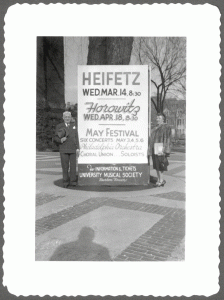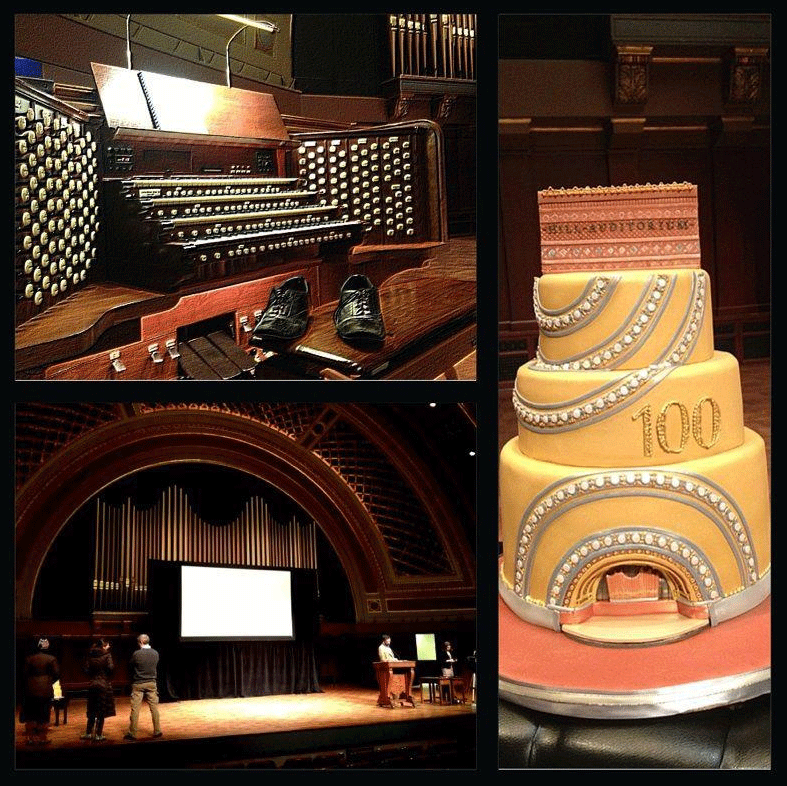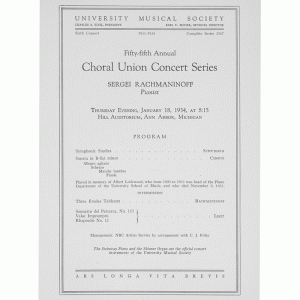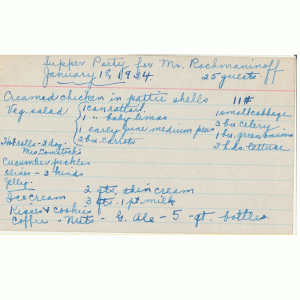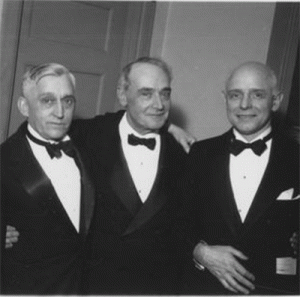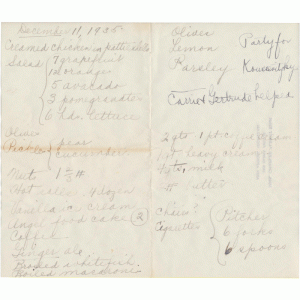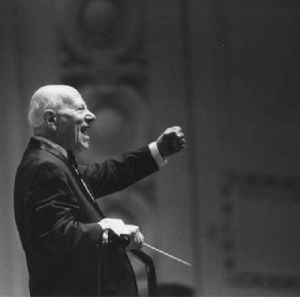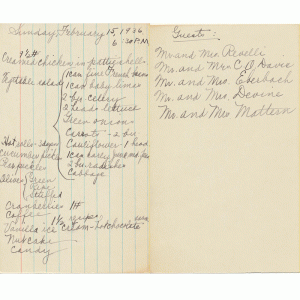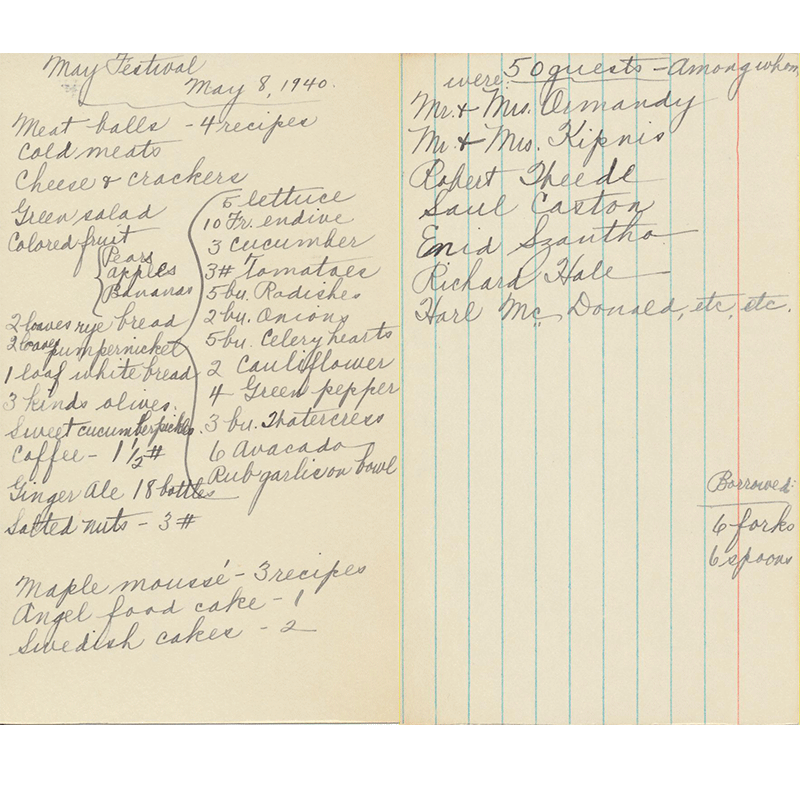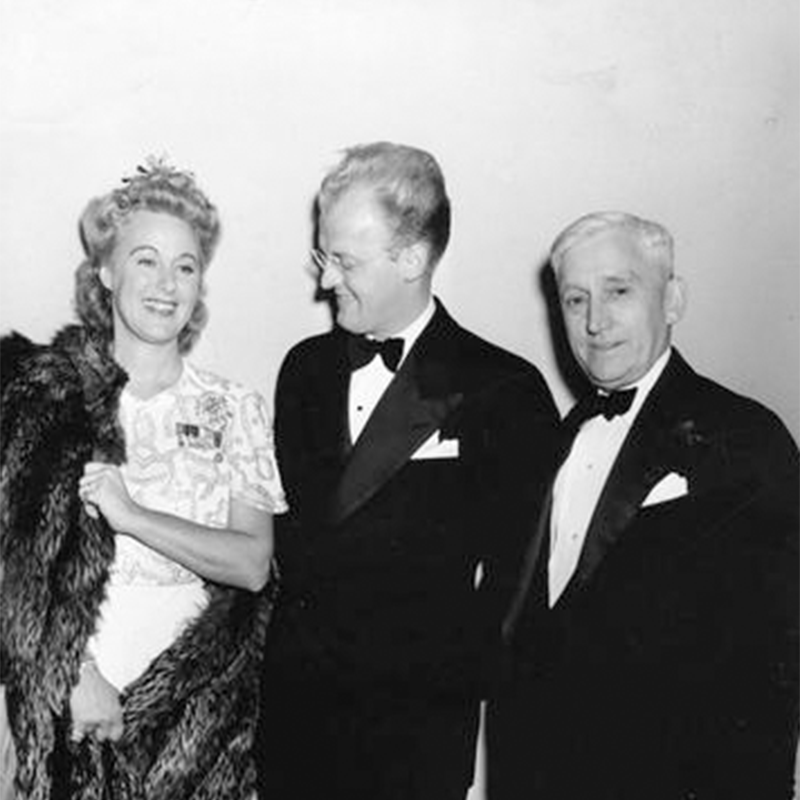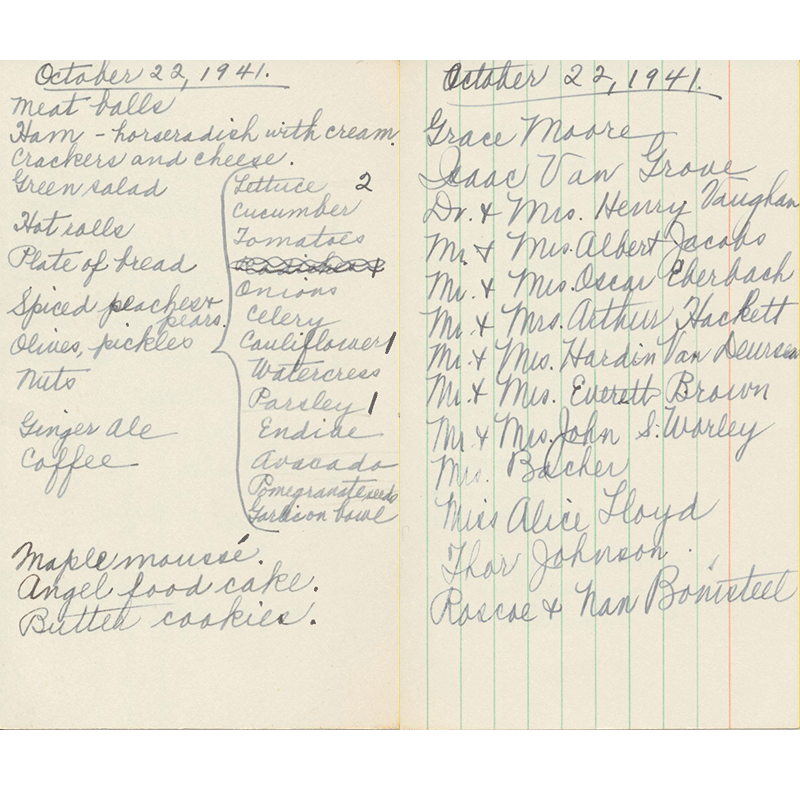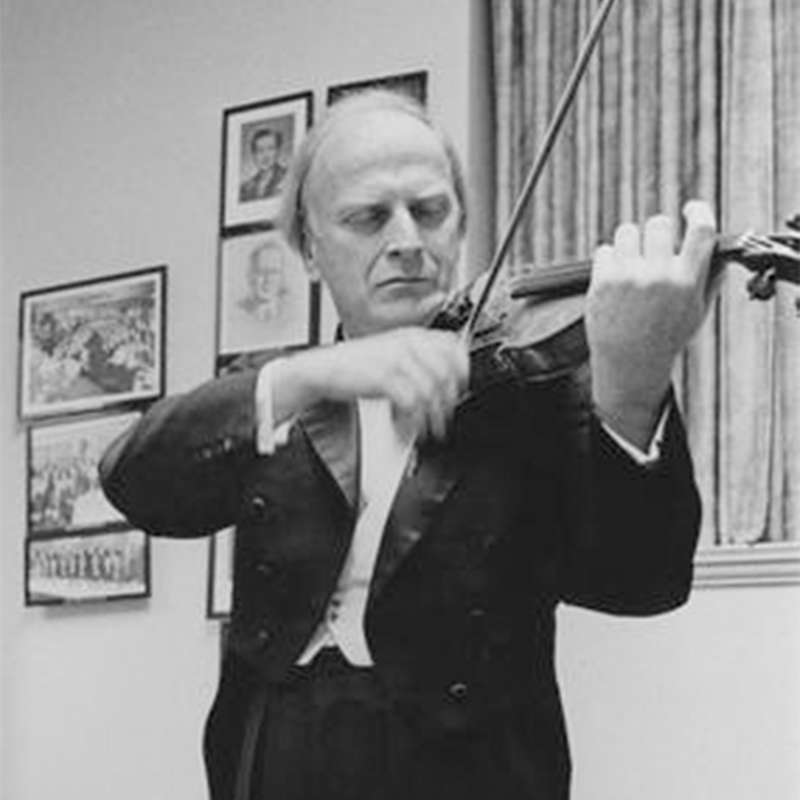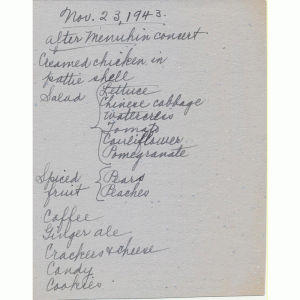This Day in UMS: Jascha Heifetz
Editor’s Note: “This day in UMS History” is an occasional series of vignettes drawn from UMS’s historical archive. If you have a personal story or particular memory from attending the performance featured here, we’d love to hear from you in the comments.
March 14, 1951: Jascha Heifetz in Hill Auditorium
Photo: Charles and Alva Gordon Sink.
We love this photo of first UMS president Charles Sink and his wife Alva Gordon Sink and a promotional sandwich board featuring Russian violinist Jascha Heifetz’s 1951 performance in Ann Arbor.
He first performed in Ann Arbor in 1919, at age 18. He was already a sensation. He was also, as Charles Sink Remembered, “a normal boy interested in everything before him.” Touring the campus before the concert Heifetz wanted to see the medical school, asking, “Do they cut up bodies, and can one see them?” Sink arranged to take him to the anatomy lab, where Heifetz watched intently, asking many questions. To Sink’s relief, the medical students “refrained from their usual practice of dropping stray toes” or other body parts into the pockets of an unwary visitor.
Heifetz returned for many concerts and he always mentioned his Michigan “medical course.”
Highlights from Hill Auditorium Celebration
Thanks so much to all who came to our Hill Auditorium Celebration this weekend, February 2, 2013. Don’t forget to share your Hill Auditorium memories, and to check out Alva Gordon Sink’s incredible collection of menu cards for artist dinners from throughout Hill’s history.
100 Years in Hill & Hundreds of Menus
Meet Charles and Alva Sink, the couple behind UMS for a remarkable 64 years.
Charles Sink was president of UMS between 1904 and 1968. During this time, UMS presented many of the world’s great orchestras and recitalists. Coupled with Charlies’s vision were Alva Gordon Sink’s hostessing abilities. At their home on Olivia Street, Alva welcomed hundreds of guest artists for post-concert receptions and dinners, preparing a spectacular feast for everyone from Eugene Ormandy to Sergei Rachmaninoff.
On February 2, 2013, UMS is throwing a free day-long celebration for Hill Auditorium’s 100th Birthday. Meet us at Hill for a special Saturday Morning Physics event, the premiere of our feature-length documentary on the historic concert hall, and much more. Come to any or all activities, and yes, there will be cake.
Photo: Charles and Alva Sink: A Day’s catch, 45 speckled trout, July, 1945.
Will our party be as fancy as an Alva Gordon Sink party? Check out the images of her amazing menu cards over the years, along with the artists she honored and events she celebrated.
1934 – Sergei Rachmaninoff came to Hill Auditorium, and after he ate Creamed Chicken in Patty Shells. (L: 1934 Rachmaninoff Program, R: Menu for Rachmaninoff.)
1935 – The Boston Symphony Orchestra performed under conductor Serge Koussevitzky. After the concert they all enjoyed Broiled Whitefish and Baked Macaroni. (L: Charlie Sink, Serge Koussevitzky, Earl V. Moore in 1935. R: Menu for Serge Koussevitzky and The Boston Symphony Orchestra.)
1936 – William D. Revelli, the grandfather of bands at the University of Michigan, had a taste of Vanilla Ice Cream, Nutcake, and Hot Chocolate after conducting a performance. (L: Revelli performs in Hill Auditorium in 1935. R: Menu for Revelli.)
1940 – Eugene Ormandy enjoyed Meatballs and Swedish Cakes after conducting the Philadelphia Orchestra at the May Festival in Hill Auditorium. (L: Eugene Ormandy conducts in Hill Auditorium in 1940. R: Menu for the May Festival and Mr. Ormandy.)
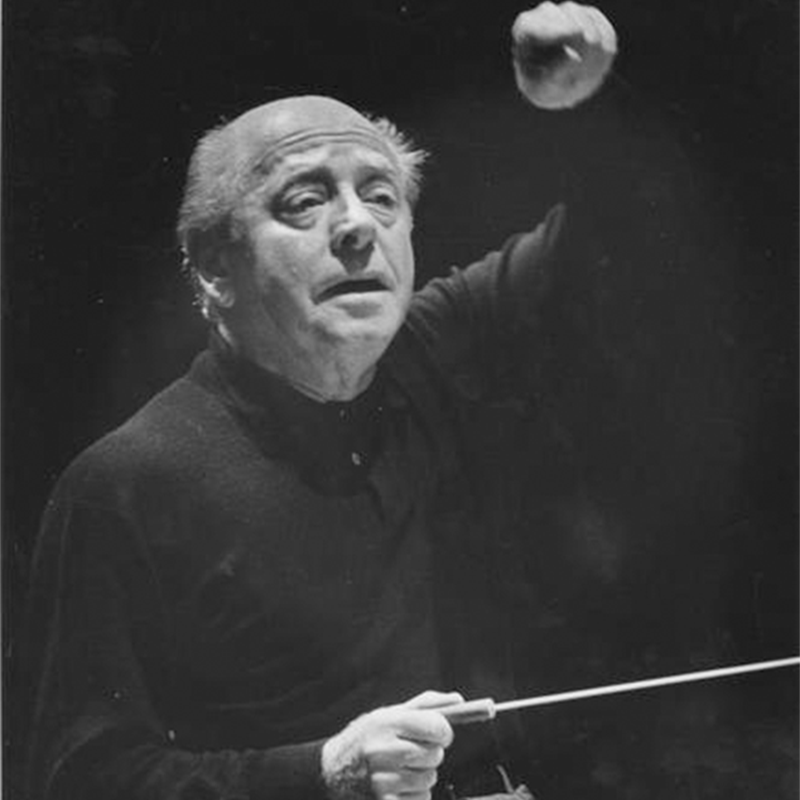
1941 – Grace Moore, the American operatic soprano and actress, enjoyed Ham and Spiced Peaches after her performance. (L: 941 Grace Moore, Gail Rector, Charlie Sink, R: 941 Menu for Grace Moore)
1943 – Yehudi Menuhin, the violin virtuoso, had Creamed Chicken, a Salad, and Ginger Ale after his performance in Hill. (L: Yehudi Menuhin backstage in 1943, R: Menu for Mr. Mehuhin.
Continue browsing Alva’s menu, featuring her annual feasts for the Messiah performance and the May Festival.
This content is funded in part by The Michigan Humanities Council an affiliate of the National Endowment for the Humanities.


